@AIX-MARSEILLE UNIVERSITY, @CNRS, @CINaM, @UMR 7325
Modular and adaptive self-assembling dendrimers for nanomedicine
The application of nanotechnology is widely expected to bring breakthrough in medicine for disease treatment and diagnosis. Dendrimers are ideal nanomaterials for elaborating nanomedicine by virtue of their well-defined structure, multivalent cooperativity and nanosize per se. We have recently explored modular and adaptive dendrimer nanosystems, constructed via self-assembling of amphiphilic dendrimers,1 for the delivery of imaging agents,2 anticancer drugs3 and nucleic acid therapeutics4 in cancer detection and treatment. The self-assembling approach to create supramolecular dendrimer is completely novel in concept yet easy to implement in practice, offering a fresh perspective for exploiting the advantageous features of supramolecular dendrimers in biomedical applications.
1. Acc. Chem. Res. 2020, 53, 2936.
2. Proc. Natl. Acad. Sci. U.S.A. 2018, 115, 11454; Small 2020, 16, 2003290.
3. Proc. Natl. Acad. Sci. U.S.A. 2015, 112, 2978; Exploration 2021, DOI: 10.1002/EXP.20210003
4. J. Am. Chem. Soc. 2018, 140, 16264; Nat. Protoc. 2021, 16, 327; Acc. Mater. Res. 2022, DOI:10.1021/accountsmr.1c00272
Dr. Ling Peng is currently a CNRS research director in France, and working actively at the interface of chemistry and biology. In particular, she has established bioinspired and self-assembling supramolecular dendrimers for bioimaging, drug and nucleic acid delivery in cancer detection and treatment. She was awarded with the Prize of Dr & Mme Henri Labbé of the French Academy of Sciences, and granted as Distinguished Member of the French Chemical Society.


